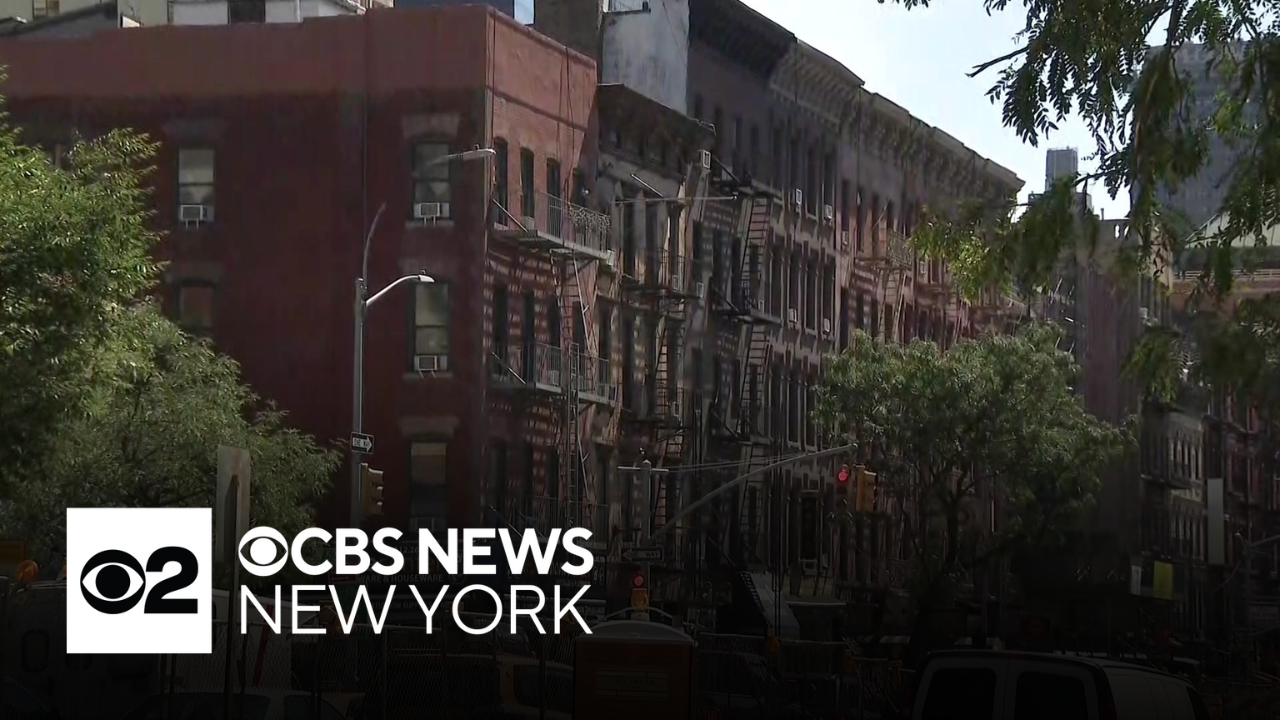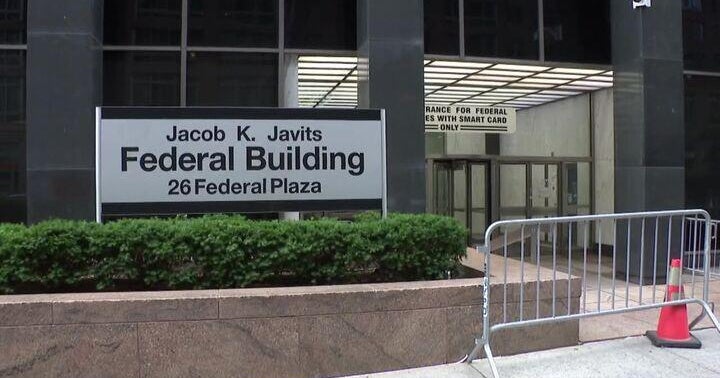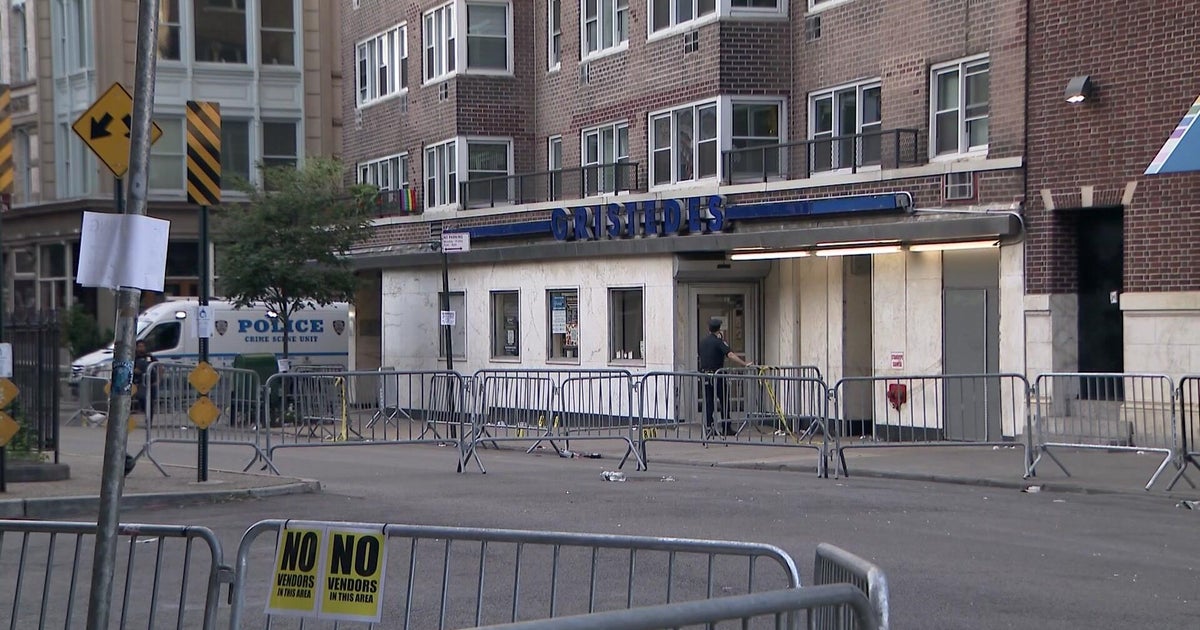NYC Rent Guidelines Board votes for 4.5% increase on 2-year leases, 3% on 1-year leases
The New York City Rent Guidelines Board voted on Monday night to increase rates for rent-stabilized apartments.
By a 5-4 count, board members arrived at a 4.5% increase for two-year leases and a 3% hike for one-year leases, after considering raising rents between 3.75% and 7.75%, and 1.75% and 4.75%, respectively.
The board's decision will take effect for leases between Oct. 1 of this year and Sept. 30, 2026.
Tenants vs. landlords
Earlier this spring, the Rent Guidelines Board held a preliminary vote where it agreed to the range of rent increases, only to later agree to consider lower-range increases for two-year leases.
Landlords said they shouldn't have to eat the cost of rising costs for maintenance, insurances and taxes, but tenants said neither should they, prompting them to call on the board to adopt the smallest increases.
The results of the vote, however, left many people on both sides of the issue upset.
"I've been in my building for 16 years. What happened to the money that they got from me for my rent? What happened to the money? What did they do? Did they [go] on vacation? Did they buy another building?" wondered Mercedes Escoto.
"So it's a waste of time. This is done every year for no good. People are making money, but we're not making more money," tenant Joanne Lawson said.
"I look at $600 a year more on a one-year lease, or $900 more a year and that means what are we gonna cut back on?" tenant Johnny Rivera said.
Following the vote, Ann Korchak, board president of the landlord advocacy organization Small Property Owners of NY, issued a statement, taking the Rent Guidelines Board's decision to task.
"The RGB's independent public members, like their predecessors, have failed small building owners. We needed rent increases proportional with the 6.3% surge in building operating costs presented in the RGB's own reports. They didn't follow the math, and now these rent adjustments will further plunge small rent-stabilized buildings into distress and foreclosure. Capping rent increases when operating costs are rising is unsustainable. It's time to seriously consider in the future separate, higher rent increases for apartment leases in small economically distressed buildings with high numbers of rent-stabilized apartments," Korchak said.
Korchak represents a group of landlords who own just one or two units and wanted a larger increase. They say, despite the most recent Rent Guidelines Board data showing net operating income up 8% in 2023, outpacing expenses that only rose 3.8%, it doesn't tell the whole story.
"That data is grossly incorrect. Why? Because they're mixing different kinds of buildings. They're mixing the pre-1974 buildings, small buildings, 100-year-old buildings mostly that have dramatically more expensive costs," landlord Bryan Liff said.
"We're not millionaires and all of us aren't white. How about that? And we go to work to supplement what's happening in our small properties," landlord Joyce Holland said.
Rent hike or freeze a key issue in NYC mayor's race
The mayor appoints the nine-member board, and the question of a rent increase has become a major issue in the mayoral race.
Queens Assemblyman Zohran Mamdani declared victory in the Democratic primary last week, in part on promises to freeze the rent for the entirety of his term. Mamdani's success is expected to made official Tuesday, when the Board of Elections will release its ranked choice voting result, which is expected to show him crossing 50%, and therefore winning.
Mayor Eric Adams, who is seeking reelection but is running as an independent this time, has often sympathized with the plight of landlords, but made it clear in a lengthy statement following the vote he is not happy with the Rent Guidelines Board's decision.
He said, in part, "Another massive cost for New Yorkers each month is rent, and the city's historically low rental vacancy has millions of us feeling the squeeze, which is why, earlier today, I urged the Rent Guidelines Board to adopt the lowest increase possible, as I've done in the past. While the board exercised their independent judgment, and made an adjustment based on elements such as inflation, I am disappointed that they approved increases higher than what I called for."
Adams went on to say freezing the rent is not the answer, either.
"While our administration is always fighting to make this city more affordable, what we will never do is sell New Yorkers on an idea that would ultimately leave them in worsening housing conditions. Rent may be on the rise, but so are deteriorating housing conditions -- including inadequate heat and heating breakdowns, mice and rat problems, mold, and leaks -- especially for New Yorkers in rent-stabilized housing," Adams said. "Demands to 'freeze the rent' would exacerbate these harmful health and safety issues inside the homes of more than 1 million New Yorkers by depriving owners of the resources needed to make repairs -- a cruel and dangerous proposal. While freezing the rent may sound like a catchy slogan, it is bad policy, short-sighted, and only puts tenants in harm's way."
City Comptroller Brad Lander, who is in third place in the Democratic mayoral primary race heading into ranked choice voting, said Adams should shoulder some of the blame for the Rent Guidelines Board's decision.
"For the fourth year in a row, Mayor Adams' appointees on the NYC Rent Guidelines Board stuck tenants with a rent increase they can't afford -- even as landlord profits have soared, vacancy rates are at historic lows, and the proportion of rent-burdened households has reached unsustainable levels," Lander said in a statement. "New York City tenants are facing the highest rents ever. Given the severity of the housing emergency, it is vital that the City do everything it can to keep rents as low as possible, ensure units are well-maintained, and cover essential costs. Instead, Mayor Adams' appointees to the RGB jacked up tenants' rents once again."
Lander and Mamdani cross-endorsed each other in the lead up to the primary and share similar views on rent hikes.
"After carefully reviewing research compiled by the Rent Guidelines Board, I concluded that a rent freeze was appropriate for the upcoming year, following three years of rent increases that have raised rents by nearly 9%. Economists, tenant advocates, and even the City's own reports also concluded that a rent increase would lead to more displacement and inequality. And last week, over half-a-million voters -- well over half of the electorate -- came out and voted for candidates supporting a rent freeze," Lander said. "Unfortunately, Mayor Adams' appointees to the Rent Guidelines Board failed to listen."




